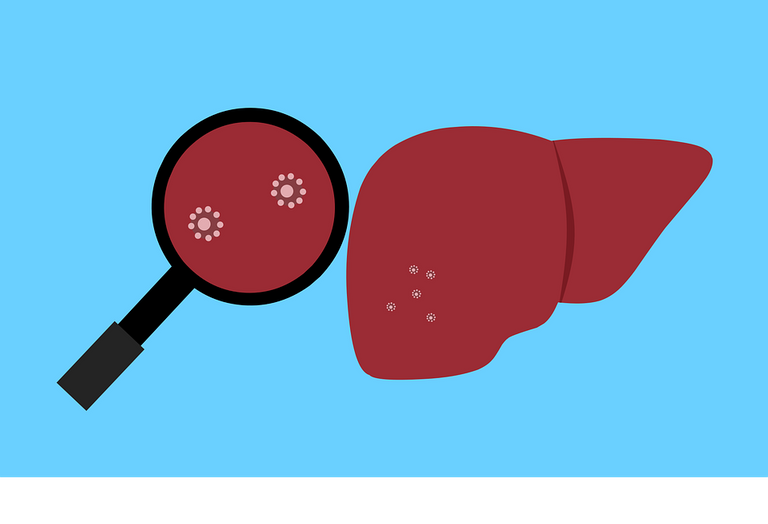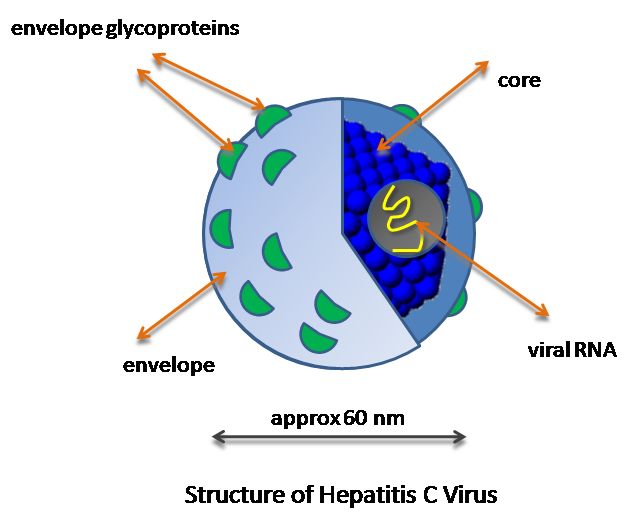A close call with Hepatitis B
It was a sunny Saturday afternoon when one of my married friends called to break a piece of rather unpleasant news to me, she was recommended a Hepatitis virus test during one of her ante-natal visits to the clinic, went for the test and came back positive. She has been in gestation for some months now and everything has been normal until now.
'What does it mean?' She asked.
Of course, she understands what it means. It means she has the hepatitis virus and that is not something pleasant even to the ears of any layman. Was she rather wish to know is the implications of having the virus both for her and her growing baby - and perhaps, her entire households.
My knowledge about the hepatitis virus is a bit vague and I did not want to give her false information or heighten her anxiety unnecessarily. I calmly informed her that it is really not a big deal and that she will most likely be fine and her baby, even though I was not entirely sure. What I am sure of, however, is that the virus is not as deadly as covid-19.
She has a certain level of trust in me, perhaps due to my educational background in Biochemistry and some of the recommendations I have given her in the past - they mostly work out. At some points, she started referring to me as a doctor. Not wanting to let her down, I decided to make a little research about the virus to refreshen my memories and promised to get back to her on it.

About the Hepatitis Virus
Hepatitis virus is a name given to a group of virus capable of causing inflammation of the liver. The liver plays several important roles in the body system including getting rid of unwanted toxic substances, metabolism of fats and sugar, production of cholesterol, regulation of blood amino acids, among many other functions. Hence, when the liver becomes inflamed as a result of vural invasion, the functions it performs become negatively impacted.
There are different variants of the hepatitis virus which are usually labeled alphabetically. The most popular among the variants are hepatitis A, B, and C. The major differences between these viruses includes their incidence rates in the population, their progressive symptoms, mode of spread as well as whether there are preventive vaccines to tackle them or otherwise.
Hepatitis A virus causes acute hepatitis just as every other variant of the hepatitis virus. In addition hepatitis virus B and C are known to be capable of causing chronic hepatitis that can lead to liver damage (cirrhosis) or even cancer in extreme cases. Particularly, hepatitis B and C viruses are known to be the leading cause of liver cancer and thus, liver transplant, according to Center for Disease Control.
While the symptoms of acute hepatitis generally vary from dark urine, light-colour stool, fatigue, to flu-like symptoms, chronic hepatitis' symptoms are known to be mild and non-specific. In actual fact, about two third and 50 percent of people with chronic hepatitis caused by hepatitis B and C viruses respectively are oblivious of their condition. Most cases are detected accidentally during routine blood tests or when the infection has progressed to advanced stages.
Just like every other known viral infections, there are no known cure for hepatitis virus. Recovery from the infection lies heavily on the immune system of the host. Most people usually recover from infection with hepatitis A virus and acute hepatitis caused by other variants after a few days to a few weeks and only in very rare cases does it lead to the death of the host. A large percentage of people infected with chronic hepatitis caused by hepatitis B and C also recover fully from the virus within six months of infection.
About 15 to 25 percent of those caused by hepatitis B lead to progressive liver damage while 5 to 25 percent of those caused by hepatitis C leads to liver damage or cancer. In some few cases, antiviral drugs are used to manage the viral load of someone suffering from chronic hepatitis
Back to my Friend
From our discussion, I got to know that my friend's hepatitis was discovered during one of the routine blood tests conducted as part of her ante-natal rituals. Since the virus is known to be transmissible via sexual intercourse, mother to child during birth, sharing of objects, etc, her entire household were recommended for hepatitis B screening and surprisingly, they all came back negative.
Immediately the Physician got the result of her household, he recommended them for hepatitis B vaccine as soon as possible. In addition, my friend was prescribed Lamivudine, an antiviral drug that works to reduce the viral load of hepatitis B virus and human immunodeficient virus in the system of infected persons.

At the Vaccine Center
I decided to follow my friend and her household to the vaccination center. The nurse on duty asked why they wanted to take the vaccine and they explained in details what happened, although I really do not know if it is necessary. They insisted on seeing the test that proved that, indeed, they were recommended for the vaccination by a Physician. According to them, only neonates are eligible for the hepatitis B vaccine and only on special cases do they give to adults.
We had to go to the hospital where they were recommended for vaccine to get their test results before they were administered the vaccine. They were told that there would be two more doses each to be taken 6 weeks and 2 to 3 months after the first dose. The vaccine was administered to their thighs, even though I read that it is supposed to be to their arms.
The following day after the first dose of the vaccine, my friends complained that everyone that took the vaccine had difficulty walking. Their thigh muscles ache very bad and this prevents them from walking. We quickly contacted the vaccine center and we were told that it is a normal reaction that will clear off in a couple of days.
Thanks for your contribution to the STEMsocial community. Feel free to join us on discord to get to know the rest of us!
Please consider supporting our funding proposal, approving our witness (@stem.witness) or delegating to the @stemsocial account (for some ROI).
Please consider using the STEMsocial app app and including @stemsocial as a beneficiary to get a stronger support.